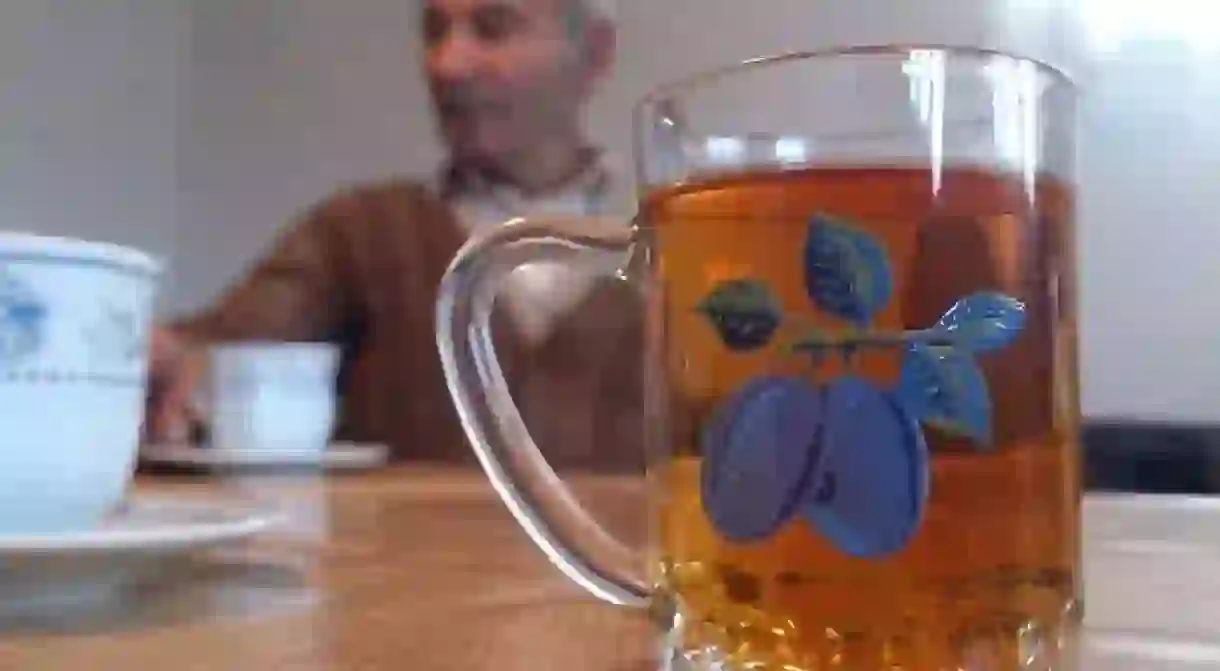A Guide To Buying Rakija in Serbia

Rakija is the national drink of Serbia, although some will say it is more than that. It is brought out in times of celebration and of sorrow, and is always considered a cure, no matter the ailment. There are plenty of ways to purchase the liqueur in Serbia, from the store to the market floor.
At the supermarket
Let’s get the obvious out the way first. Rakija might be a classic souvenir to take home following a trip to Serbia, but it isn’t some sort of gimmick alone. The fermented fruit brandy liqueur is as popular as any other alcoholic drink in the country, if not more so. Every house will have a bottle of rakija, with most having two or three.
With that in mind, rakija is readily available from the alcohol section of any supermarket. Serbian supermarkets are generally well-stocked when it comes to booze, and the entire spectrum of rakija quality will likely be available. You can buy a litre of industrial rakija for as cheap as 499RSD ($5), with better quality bottles going up as high as 3000RSD ($30).
The supermarket will likely have a good spread of flavours, but expect šljiva (plum), dunja (quince) and kruška (pear) to dominate.

Souvenir shops
Serbia produces more rakija per capita than any other nation on the planet, so it is no surprise that it is considered a traditional souvenir. Tourist shops all over the country will stock plenty of bottles of rakija as a result, as visitors pick up their souvenirs in the relative safety of the souvenir shops. This is absolutely fine (of course), but you can expect to pay a little bit over the odds for the stuff here. The selection will also be fairly limited.

Rakia Bar Shop
It seems somewhat strange that there aren’t more speciality rakija shops throughout the country, but Rakia Bar seems to have cornered the market when it comes to the best of the best. Starting life as a small rakia bar in Dorćol, the brand has snowballed into a marketing beast, and now has more bars and its own shop to deal with.
The prices are a little higher here than in the supermarket, but the rakija on offer is absolutely fantastic from top to bottom. All flavours can be found here too, and every single bottle seems to have been designed by someone with a genuine love for creative packaging. If you’re buying rakia to take home, Rakia Bar is absolutely the place to go.

At the market
If you ask a Serbian what the best kind of rakija is, you’ll get a one-word reply that doesn’t really answer the question but gets the point across. That answer is ‘home-made’ (or domaća, to use the local vernacular), and it is hard to disagree. Rakija is best when drank from an anonymous plastic bottle that someone’s grandmother provided, after stewing in the dark for months on end.
The best place to pick up some home-made rakija is going to be the green market, but you might have to do a little bit of searching to find it. Amongst the fruits and vegetables and crabby faces, there will be a few sellers peddling their home-made wares, although they might be somewhat reluctant to sell to a foreigner.
If you can perfect your pronunciation of Da li imate domaća rakija? (DAH-lee EE-mah-te DOH-ma-cha RA-kee-yah, or ‘do you have home-made rakija?), throw in a smile or two and the odd Učim polako (OO-chim POH-lah-ko, I’m learning slowly), and be patient, then you’ll be fine.

From the locals
If you’re looking for some home-made rakija but don’t feel confident enough to ask the stone-faced farmers at the market, you may have a little more luck with friends and colleagues. Everyone’s family makes their own rakija, and you may get lucky with a spare bottle or two. The best way to approach the idea is to ask where the best place to buy rakija is, and allow the Serbian pride to kick in.
‘My grandmother makes the best rakija in the country!’ will be the inevitable reply, and you might find yourself in luck. Just don’t drink it too quickly.














